A Royal Navy frigate and helicopter tracked a surfaced Russian submarine through the English Channel in a coordinated NATO operation to safeguard UK and allied waters, according to the Ministry of Defence.
HMS Iron Duke, based in Plymouth, monitored the Russian Kilo-class submarine Novorossiysk and her support tug Yakov Grebelsky near the French coast close to Ushant, at the western entrance to the Channel.
Over three days from 7 to 9 October, the frigate and her Wildcat helicopter from 825 Naval Air Squadron followed the Russian vessels’ movements as they travelled into the North Sea before handing over tracking duties to a NATO partner.
Armed Forces Minister Al Carns said the operation demonstrated the Royal Navy’s vigilance and commitment. “Russian vessels have been passing through the English Channel more frequently and our Royal Navy is on the job 24/7, keeping a close eye on their movements to make sure our waters and undersea cables stay safe,” he said. “This is a clear sign of how the UK stands strong with our NATO allies to push back against Russian aggression.”
The operation involved a network of allied warships ensuring continuous tracking of the Russian submarine from the Mediterranean to the Baltic. HMS Cutlass of the Gibraltar Fast Boat Squadron first picked up Novorossiysk in the Strait of Gibraltar before other NATO ships took over, eventually handing responsibility to HMS Iron Duke at the Channel entrance.
Commander David Armstrong, Commanding Officer of HMS Iron Duke, said the mission required close coordination between multiple navies. “A surfaced Russian submarine will always focus the mind,” he said. “This operation was characterised by teamwork, spanning an extended period and complicated by severe weather and a Kilo transiting both dived and on the surface. It has involved 11 surface units from six partner nations – likely more by the time it concludes its voyage.”
The Royal Navy’s Type 23 frigate and its embarked Wildcat helicopter used advanced sensors to maintain situational awareness throughout the mission, ready to switch to anti-submarine warfare operations if the Russian vessel submerged.
HMS Iron Duke recently operated with Standing NATO Maritime Group 1, which patrols from the Baltic to the Atlantic to maintain security and deterrence across northern Europe. This latest mission marked the frigate’s 19th such operation in the past year.


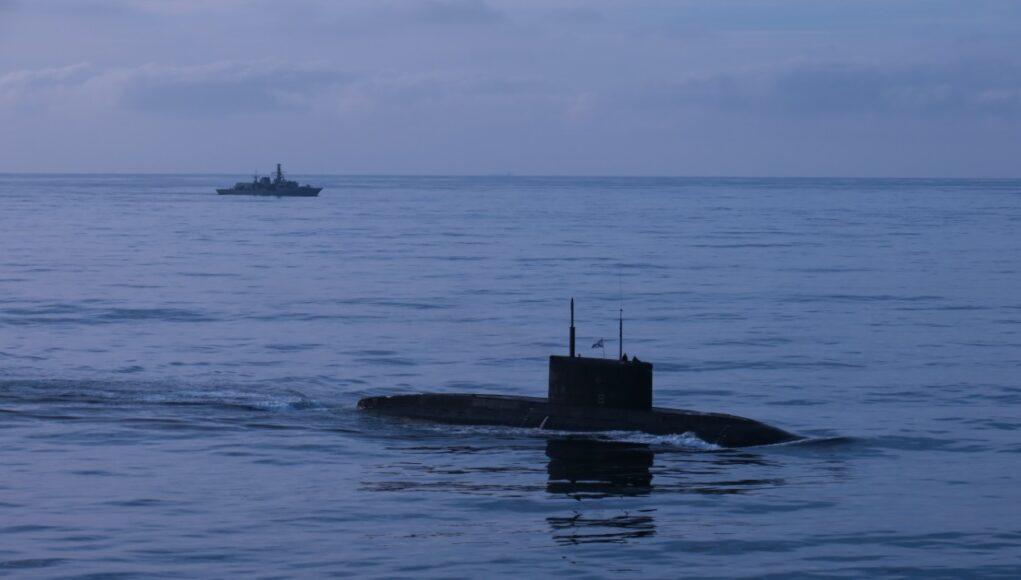
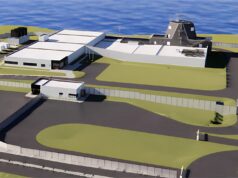
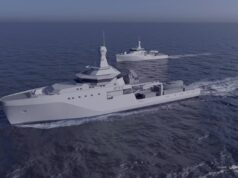
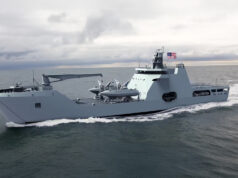
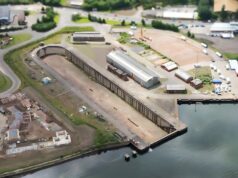

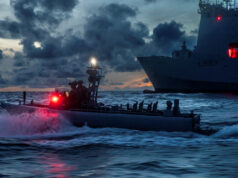

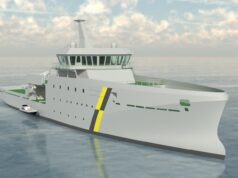

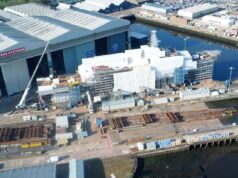

This Russian sub is travelling really slowly, if it took between 2 and 3 days to transit the Channel. That’s 4-6kts, so the technical problem might have been worse than made out.
It was leaking diesel in the Mediterranean. It’s likely that they’re going slowly and by the most direct route (even if that takes you right by watching NATO warships) to make sure they have enough left to get home.
Does the UK have the right to bar ships passing through these waters if they are defective and therefore a danger? This is a diesel boat, but I’m trying to envision the response had this been a Russian nuclear boat instead, passing through with a known fault.
No and yes.. it’s a minefield that is not worth ever getting involved in.. basically the LOSC gives the right of innocence passage in international straits.. what it does do is state if a ship refusing to obey or not complying with a coastal nations rules and regulations is not undertaking innocent passage.. but the LOSC gives very wide latitude on what is non innocent passage that can be barred using fluid terms like peace and good order as a requirement for innocent passage….but coastal states don’t generally use this wide latitude because essentially every state really does have the option to go fuck it and walk away and bar everything if they can enforce it…and no one wants to state the journey down that path… essentially the LOSC has always been coastal states agreeing to a specific limitation on sovereignty for the good of global trade….
Don’t forget reason more transits happening is because they have no access to Sevestapol due to Bosphorus being shut to warships. So closest naval base is Kronstad or Murmansk 🙂